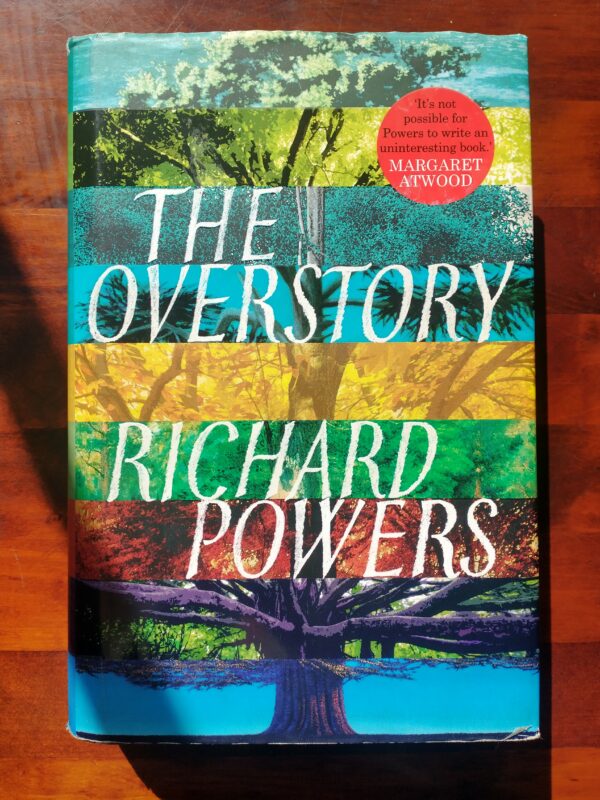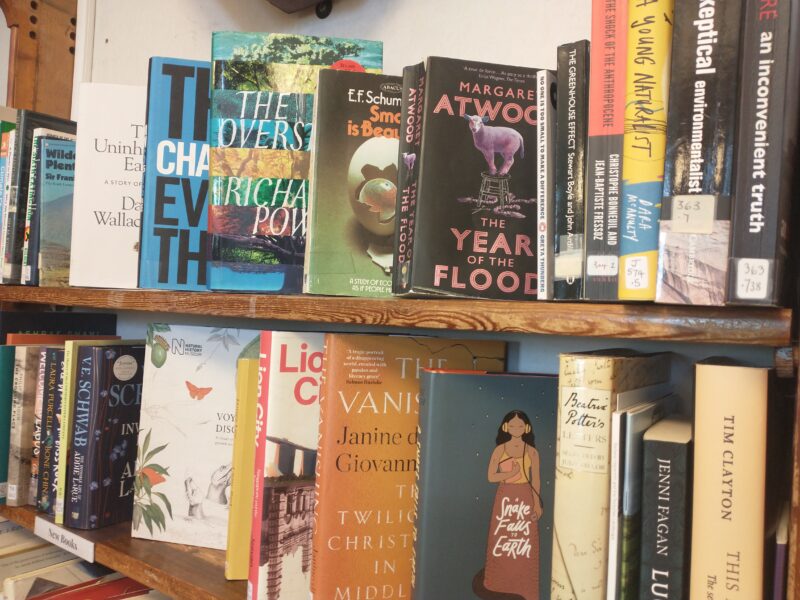
Morrab Library Trustee, climate justice advocate and the instigator of our Penwith Futures Book, Leslie Watson, has put together a reading list of titles to spur your entries to this project.
Leslie’s background is in sustainability including previous roles as Sustainability Manager for West Wiltshire District Council and Director of Sustainability South West and more recently, Leslie gained a Masters Degree in Climate Justice at Glasgow Caledonian University. In her first year as a Trustee from Morrab Leslie has been exploring ways to help the library become greener and more socially inclusive by developing a sustainability strategy.
Her suggestions in this blog range from titles for younger readers through teen fiction to classics and contemporary fiction. We have many of these books, nestled among lots of other sobering, empowering and inspiring books on the subject, in a display on the top of the ‘New Books’ shelf by reception. We hope that you find titles that pique your interest and get your mind whirring with ideas for how to make the future of Penwith better, thoughts we hope you’ll put into words in an entry for the Penwith Futures Book Project (find out how to get involved here).
Please take a look at the display next time you are in the library. We will be refreshing the selection periodically, adding more titles from the list below. We’d also love to hear your suggestions for any new cli-fi, inspiring essays or thought-provoking children’s books that you’ve been reading around the subject of climate change in our ‘Book Suggestion’ book, which can be found on the front table.
Here are Leslie’s recommendations…
For younger readers:
- The Lorax – Dr Suess – An allegory about the effects of using precious natural resources in the products we consume. It raises questions about who owns and protects the natural environment for the future.
- Hello Mr World – Michael Foreman – A positive book about climate change for young children. Mr World is unwell. Children decide to play ‘doctors’ to work out how to make him better.
- Notes for Living on Planet Earth – Oliver Jeffers – TIME best book of the year 2017. An atmospheric, heartfelt guide to our planet and the special places on it.
- Kate, who Tamed the Wind – Liz Garton Scanlon – A rhythmic read aloud story about a girl who solves a windy problem by planting trees.
- A Symphony of Whales – Steve Schuch – Beautifully illustrated tale of young girl who gathers help from others to save trapped whales – helping them to understand the importance of all life.
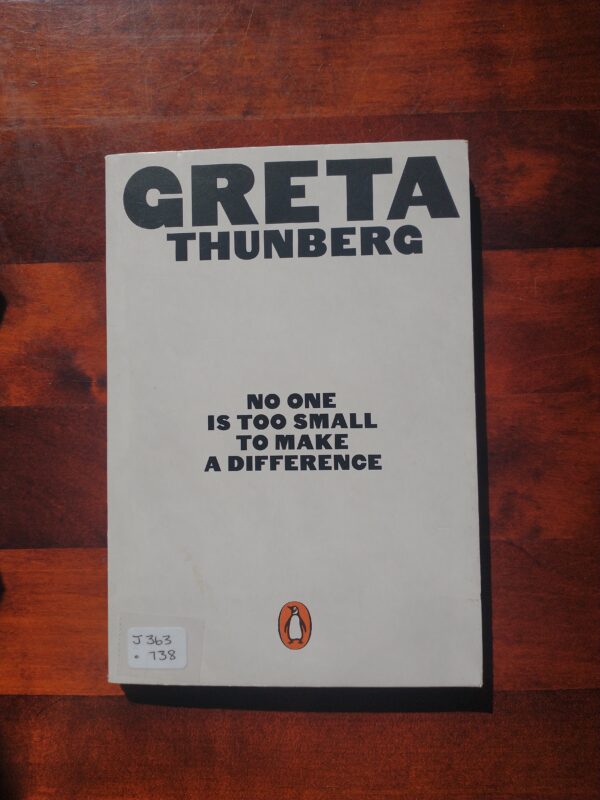 Young Adult:
Young Adult:
- No-one is Too Small to Make a Difference – Greta Thunberg – Inspirational speeches from the young climate activist.
- Youth to Power: Your voice and How to Use It – Jamie Margolin – Featuring interviews with young environmentalists, this book is a how-to guide for young people wishing to engage in peaceful, healthy, effective activism towards a socially just and environmentally sound future.
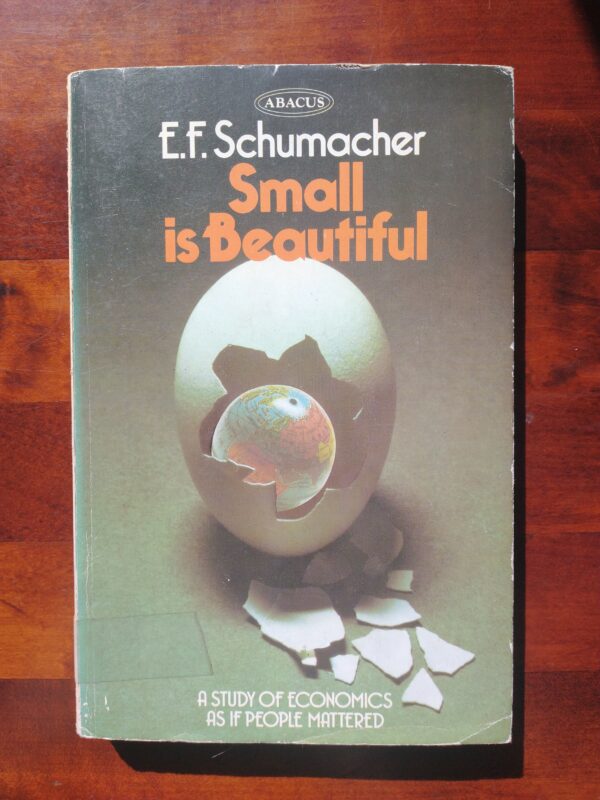 Classics:
Classics:
- Walden – Henry David Thoreau (1854) – Thoreau is widely considered to be the father of the green movement. Walden promotes a philosophy of simplicity derived from self-reliance to inspire people to live in connection with nature.
- A Sand County Almanac – Aldo Leopold (1949) – Leopold was an ecologist and environmentalist, whose essays, particularly ‘The Land Ethic’, appeals for moral responsibility for the natural world.
- Silent Spring – Rachel Carson (1962) – Charting Carson’s environmental conservation research revealing the destructive effects of pesticide use on waterways. This key work was partly responsible for the development of the environmental movement and influential to the rise of ecofeminism. Its legacy helped to establish a citizen’s right to a clean environment.
- The Drowned World – JG Ballard (1962) – An early dystopian prophecy of the environmental chaos unleashed through pollution. Ballard was writing about the endgame effects of global warming long before such a concept existed.
- Diet for a Small Planet – Frances Moore Lappe (1971) – The first book to consider the environmental impact of food production especially on waste and food scarcity.
- Small is Beautiful – E.F. Schumacher (1973) – Schumacher was an economist whose essays considered the social and environmental effects of a modern economic system that promoted unfettered growth.
- The End of Nature – Bill McKibben (1989) – Considered the first book about global warming written for a general audience and a plea for life-renewing change.
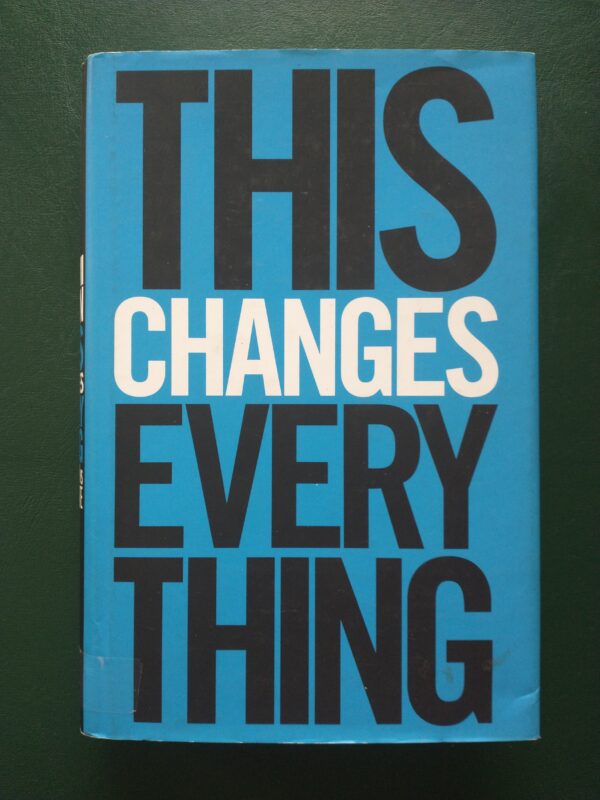
More recent:
Non-Fiction:
- This Changes Everything and On Fire – Naomi Klein – Hugely influential books reviewing the nature of the capitalist system and its social and environmental consequences.
- Doughnut Economics – Kate Raworth (2017) – Describes an alternative economic system that takes account of social capital and environmental limits.
- The Uninhabited Earth – David Wallace-Wells (2019) – Explains how complacency and negligence are putting the world on a course to become uninhabitable unless we change and adapt how we live.
- The Sixth Extinction: An Unnatural History – Elizabeth Kolbert (2014) – Received The Pulitzer Prize for general non-fiction in 2015. Examines the current and projected human-caused extinction of our planet’s flora and fauna.
- Earth Emotions – Glenn A. Albrecht (2019) – Examines our emotional responses, particulary by young people, as we understand the environmental consequences, actual and predicted, of human activity. It Introduces new terms including ‘solastagia’- (longing for a lost home) and optimistically proposes a change from the destructive Anthropocene to a balanced ‘Symbiocene’.
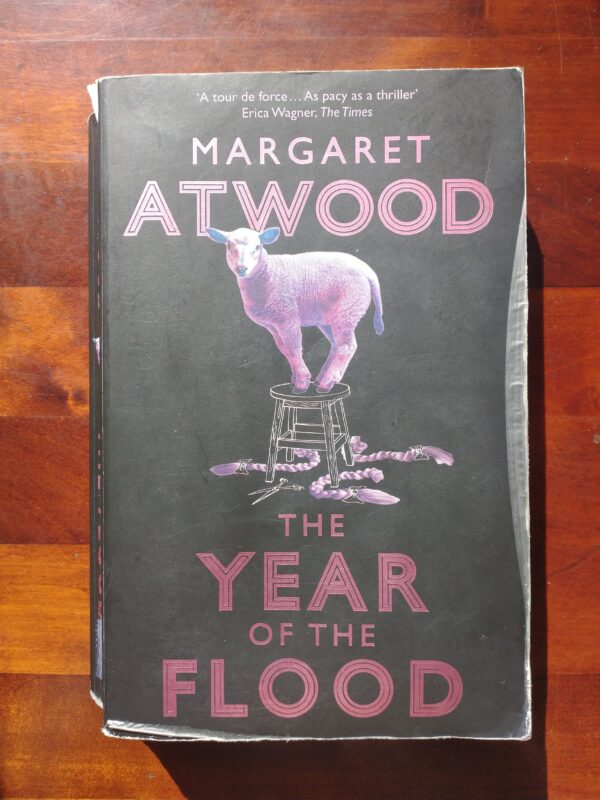 Fiction:
Fiction:
- The Year of the Flood – Margaret Atwood (2009) – Part of a dystopian trilogy exploring the need for us to reconnect with nature.
- Flight Behaviour – Barbara Kingsolver (2012) – Addresses the lack of public education on global warming through the story of a woman whose life changes when 15 million monarch butterflies alight in the woods near her home.
- Overstory – Richard Powers (2018) – Winner of the 2019 Pulitzer prize. A sweeping work about environmentalist activism. A gigantic fable set amongst the trees.
- The Great Derangement – Amitav Ghosh (2016) – The acclaimed Indian novelist argues that we may be deranged in our seeming inability to grasp the scale of the climate crisis. He considers it the most urgent task of today’s writers to imagine better ways for humans to exist on the planet.
- The Ministry for the Future- Kim Stanley Robinson (2020) – An epic of the imagination using fictional eye-witness accounts to tell the story of how the current environmental crisis could unfold. With a hopeful depiction of in the nick of time resolutions.
